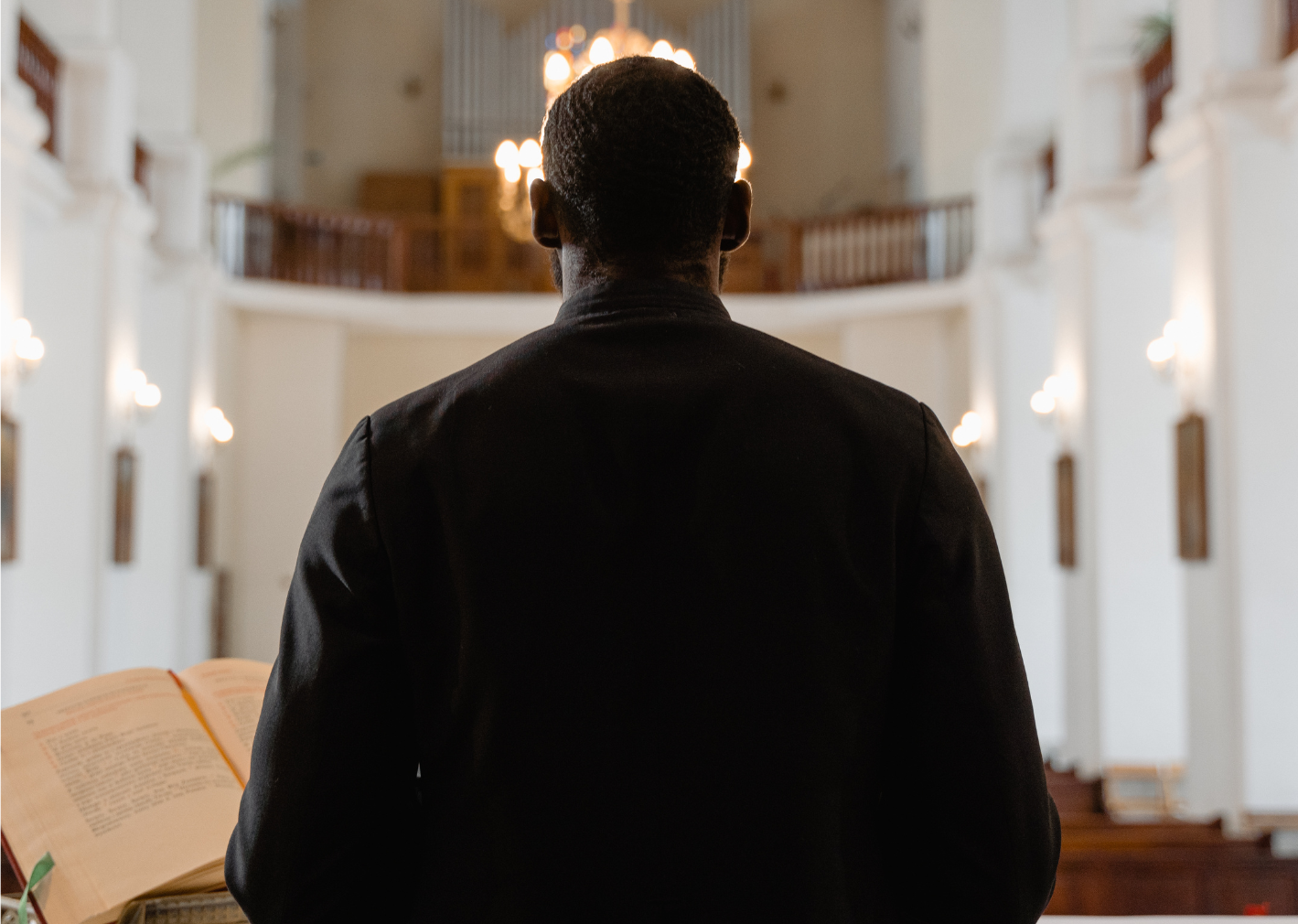March 28, 2024
A Brief History of a Biblical Theology Definition
Written By Grace Theological Seminary
Tagged With Grace Theological Seminary

It is true what they say, those who fail to learn from history are condemned to repeat it. This reality exists in the world of being able to identify a Biblical theology definition as well. Adjunct Professor of the School of Ministry Studies Rob Neufer has provided a glimpse into where our understanding began and, perhaps more importantly, how it has progressed.
Biblical theology has a rich and deep history. Thomas Schreiner places the starting point of a biblical theology definition at the beginning of the church.1 He later concedes that the formal beginning is traditionally credited to Johann Philip Gabler (1753—1826) in his 1787 address titled “An Oration on the Proper Distinction between Biblical and Dogmatic Theology and the Specific Objectives of Each.”2 One of Gabler’s concerns was that dogmatic theology was beginning to separate itself from the Bible.
Why is the history of biblical theology important?
According to Schreiner, Gabler “hoped that biblical theology would open fresh windows on old problems and inform dogmatic theology so that greater agreement about the teaching of the Scriptures could be attained.”3 One of Gabler’s contributions included identifying a three-step methodology for biblical theology.
1) “We must study the biblical texts in their historical context and collect all the material in the cannon, both that which is contingent and that which is unchanging.”
2) “We must classify the material that arises above historical particulars and is not contingent. What is normal now functions as a filter for studying the material collected in the first stage.”
3) “We must arrive at common ideas that are divine and that transcend what are merely human thoughts.”4
It is clear from his method that his understanding of philosophy acted as a filter for his conclusions. He differentiated ‘divine ideas that transcend’ from merely human thoughts. His rationalism did not allow him to consider the possibility that the Bible could speak truth independently; rather it must be scrutinized by human reason.5 Despite Gabler’s liberal approach, his method prevailed in the academy and most works of biblical theology from the 18th to the early 19th centuries subordinated biblical revelation to human reason.6
A turn in understanding at the turn of the century
An important development in offering up a biblical theology definition came when Geerhardus Vos was appointed the new chair of biblical theology at the College of New Jersey in 1894. According to Hamilton, “Geerhardus Vos is regarded as something of a pioneer by many North American evangelical students of biblical theology. In a sense, Vos salvaged the tool from damage done to it by the Enlightenment.”7 Indeed J. I. Packer called Vos “an all-time master in the field of Biblical Theology.8 Vos proposed that biblical theology deals with “the self-revelation of God deposited in the Bible” and as a result had respect for the “divine activity” that liberal theology had long since abandoned.
The final antecedent to modern biblical theology we will explore came from Karl Barth (1886 – 1968). Barth’s break with liberal theology made him a reformer of sorts and his commentary on Romans published in 1919 was his Ninety-Five Theses. When he published the second edition in 1922, “As men like Bernhard Anderson and James Smart saw it, the publication of that second edition launched Biblical theology as we know it today.”9
Unlike liberal theologians, Barth was interested in hearing from God through revelation. “Barth intended to show that the words of the Bible were not just a record of what ancient people thought about God, each other, and themselves, but a revelation of what God was saying to them and is still saying to us today.”10
World War I had a tremendous influence on Barth. As a pastor during the war, Barth wanted his congregation to hear from God. He wanted them to know, “that the Bible spoke the Word of God again, pointing the church to repentance and to salvation by grace through faith, and not by reason or by the works of human hands.”11 Barth’s influence on theology in general and a biblical theology definition, in particular, reached a new generation and challenged the dominant foothold that liberal theology held.
Understanding where biblical theology currently stands
The current state of biblical theology seems to be thriving. The New Studies in Biblical Theology series, edited by D.A. Carson currently has 59 volumes.12 A more recent series, Essential Studies in Biblical Theology, edited by Benjamin Gladd, has already produced eight volumes. In addition, a new biblical theology commentary series by Lexham Press has recently begun publishing volumes. It is titled Evangelical Biblical Theology Commentary (General editors: T. Desmond Alexander, Thomas R. Schreiner, and Andreas J. Köstenberger) and currently has nine volumes.
In addition to the traditional items covered in recent commentaries series (introductory matters, textual matters, and exegetical matters), the Evangelical Biblical Theology Commentary series includes a “thorough discussion of its most important theological themes in relation to the canon.”13 Finally, Zondervan has published an eight-volume series titled Biblical Theology of the New Testament covering every genre of the New Testament.14 These are just a few of the recent publications in the field of biblical theology.
Interested in learning more about the methodologies of studying biblical theology definitions? Check out this article and explore the unique ways in which people explore the richness of the Bible. For a deeper dive that will equip you for meaningful ministry, learn more about our Master of Divinity in Exegetical Studies.
References
1 Thomas Schreiner. New Testament Theology: Magnifying God in Christ. Grand Rapids: Baker Academic (2008), 867.
2 Ibid., 868
3 Ibid., 868
4 Ibid., 869
5 Geerhardus Vos. Biblical Theology: Old and New Testaments. Eugene, Oregon: Wipf & Stock (2003), 5.
6 New Dictionary of Biblical Theology. Downers Grove: Inter-Varsity Press (2000), 13.
7 James Hamilton. God’s Glory In Salvation Through Judgment: A Biblical Theology. Wheaton: Crossway (2010), 43.
8 John Owen. Biblical Theology or The Nature, Origin, Development, and Study of Theological Truth in Six Books. Pittsburg: Solio Deo Gloria Publications (1994), xi.
9 Gerald L. Bray. “Biblical Theology and from Where It Came.” Southwestern Journal of Theology 55, no. 2 (Spr 2013): 200. https://search.ebscohost.com/login.aspx?direct=true&db=rfh&AN=ATLA0001991762&login.asp&site=ehost-live.
10 Ibid., 200.
11 Ibid., 200
12 See: https://www.ivpress.com/new-studies-in-biblical-theology#:~:text=New%20Studies%20in%20Biblical%20Theology%20volumes%20focus%20on%20three%20areas,biblical%20theme%20across%20the%20biblical. Accessed on 9 June 2023.
13 See: https://bestcommentaries.com/series/evangelical-biblical-theology-commentary-ebtc/. Accessed on 9 June 2023.
14 Köstenberger, Andreas J. “The Present and Future of Biblical Theology.” Themelios 37, no. 3 (November 2012): 464. https://search.ebscohost.com/login.aspx?direct=true&db=rfh&AN=ATLA0001989844&login.asp&site=ehost-live.
Share
Tagged With Grace Theological Seminary


